Spring Rilke Circle: Befriending Mystery
A monthly call where living with perennial questions meets embodied speaking and listening.
For this Spring’s Rilke Circle, we’re living with the question, ‘What does it mean to be human?’. Most months, I post an answer that arose from my own direct experience, writing it in the present tense because, during a Rilke Circle we play with time by speaking in the present tense, inviting others to join us in that experience as if it’s happening now. This month’s post is unusual as it captures several entwined responses.
Our next Rilke Circle is April 16th, 12-12:50 PST. While Rilke Circles are reserved for paid subscribers, I’m happy to gift a free month if you’re curious to experience it. Direct message me and I’ll share the Zoom link to register. Here’s optional reading that provides more details on the purpose, agenda and roles for the call, as well as a video introduction.
Paid subscribers, you’ll find the link to register here for our Zoom call April 16th. Note, advanced registration is required.
It’s late March, and I’m on a family holiday in Ireland. We’ve just had a blustery tour of Neolithic (Stone Age) tombs at Newgrange and Knowth, where several kerb-stones are decorated with megalithic art. While there are theories about these sites and the symbol’s meaning, it remains a mystery.
My husband is driving these narrow roads, and my stomach clenches each time he turns right into the left lane or when oncoming cars and trucks stray beyond the midline. Given his keen perception of space, I’m grateful he’s behind the wheel. My role is navigator, announcing upcoming turns and when to exit the next rotary. The windshield wipers are rhythmically squeaking, and a pile of backpacks and rain jackets accompany our twenty-something son in the backseat.
There’s something about this landscape that soothes and calls to me. We’re passing endlessly, rolling green hills parceled out by stone walls, pastures of sheep with white houses, and windswept trees. Occasionally, one of us will exclaim, ‘lambikens’ at sighting the adorable, spindly-legged creatures nursing, wagging their tiny tails, or tucked up against their mum, using her as a windbreak.
I sense a few answers to this question of what it means to be human arising: befriending mystery, appreciating beauty, and being moved by maternal love.
The GPS is leading us to the address of Owen Mulanney, my great-great-great-grandfather on my mother’s side. My last-minute research turned up his birth in 1840, his occupation as a farmer, and his residence back in March of 1901. We might see the home he shared with his wife, Delia, and daughter, Katherine, in Ballymoylin, Kilglass South, Roscommon.
I’ve visited Ireland five times, and this is the first time I’ve tried to locate my ancestors. As we near Ballymoylin, after nearly two hours of driving, my anticipation is mounting. This feeling of traversing the specific territory of my ancestors is new to me. A strange intimacy trickles through me like a stream finding its way from the mountain. The GPS spot we’ve been aiming for is just over a bridge on the left, and the screen shows our car passing our destination.
After my husband pulls over, I exit the car without my raincoat and run back to stand in the middle of the street so I can take a picture of two older homes, a white one and a red one. I don’t know which one was theirs, and I don’t dare knock on a door.
A car is coming, and I dash back to sit in the passenger seat, with drops of rain beading up and soaking into my black cashmere sweater.
We’re all hungry and eager for a pub lunch, but nothing in this two-block town is open. My image of eating Irish stew in their hometown, chatting with locals, or walking the cemetery never materializes. We’re still an hour and forty-five minutes from Lecanvey, our destination on the West Coast. The tradeoff of wandering aimlessly around in the rain and adding further delays to our arrival causes us to carry on. As we drive further away from Ballymoylin, a slow disappointment ebbs in like a tide. Being human involves living with acts of imagination that don’t always become reality.
Days later, we’re in Sligo, in an old house just beyond Hyde Bridge, which is converted into the Yeats Memorial Museum. The curator is a tall, dark-haired man dressed in a green Irish knit sweater. After viewing the public displays, he lets us into a locked room to see original art from the Yeats family. William Butler Yeats father’s self-portrait, his brother’s paintings, and artifacts from his sisters, who ran their own printing press. The Yeats family were artists. The desire to create beauty arises as another response to the question of being human, bringing acts of imagination into reality.
The curator asks where we’re from and if we’re visiting relatives. I mention our brief drive through Ballymoylin and ask where he’s from. He says, “My father’s English, which is my own cross to bear, and my mum grew up in Roscommon. There are a lot of Mullanneys in Roscommon, and likely some are bound to be your relatives.”
The map of Ireland, with its thirty-two counties, shifts in my mind to include not just the names of the counties but the last names of the families that have inhabited those lands, like clans, for centuries. The notion of a sense of place takes on new meaning for me as I picture my ancestors’ hands tilling the soil, their feet walking the pastures, their eyes glancing at the stars and moon, and their skin chafing in the winds.
Whenever I travel to places with ancient history, I enjoy imagining who walked those cobbled stone streets before me. I’ve never, until this trip, had such a pervasive feeling of relatedness to a place, such a tenderness beyond all reason. I sense the question of what it means to be human, arising again with this confluence of time, ancestry, and place rippling through me, mingling with a longing that defies words.
On our last day in Ireland, we plan to return to Ballymoylin, detouring on our drive back to Dublin airport. However, when we check-in the night before departure, we discover our late afternoon flight is canceled, and we’re rebooked on a flight that departs in the morning. Our window for visiting the town of my ancestors is gone for this trip, and a wave of disappointment engulfs me. Being human involves riding these waves of emotions and carrying on.
I’m back home on Whidbey Island, unpacking my suitcase, which includes some extra items, Irish linen napkins embroidered with lime green seagrasses, and a few small stones from beach walks. I feel the absence of a stone from Ballymoylin and wonder if I’ll walk that place on the earth that my ancestors walked in the future, and if I do, what will await me.

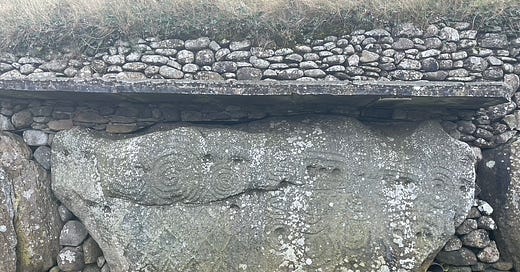



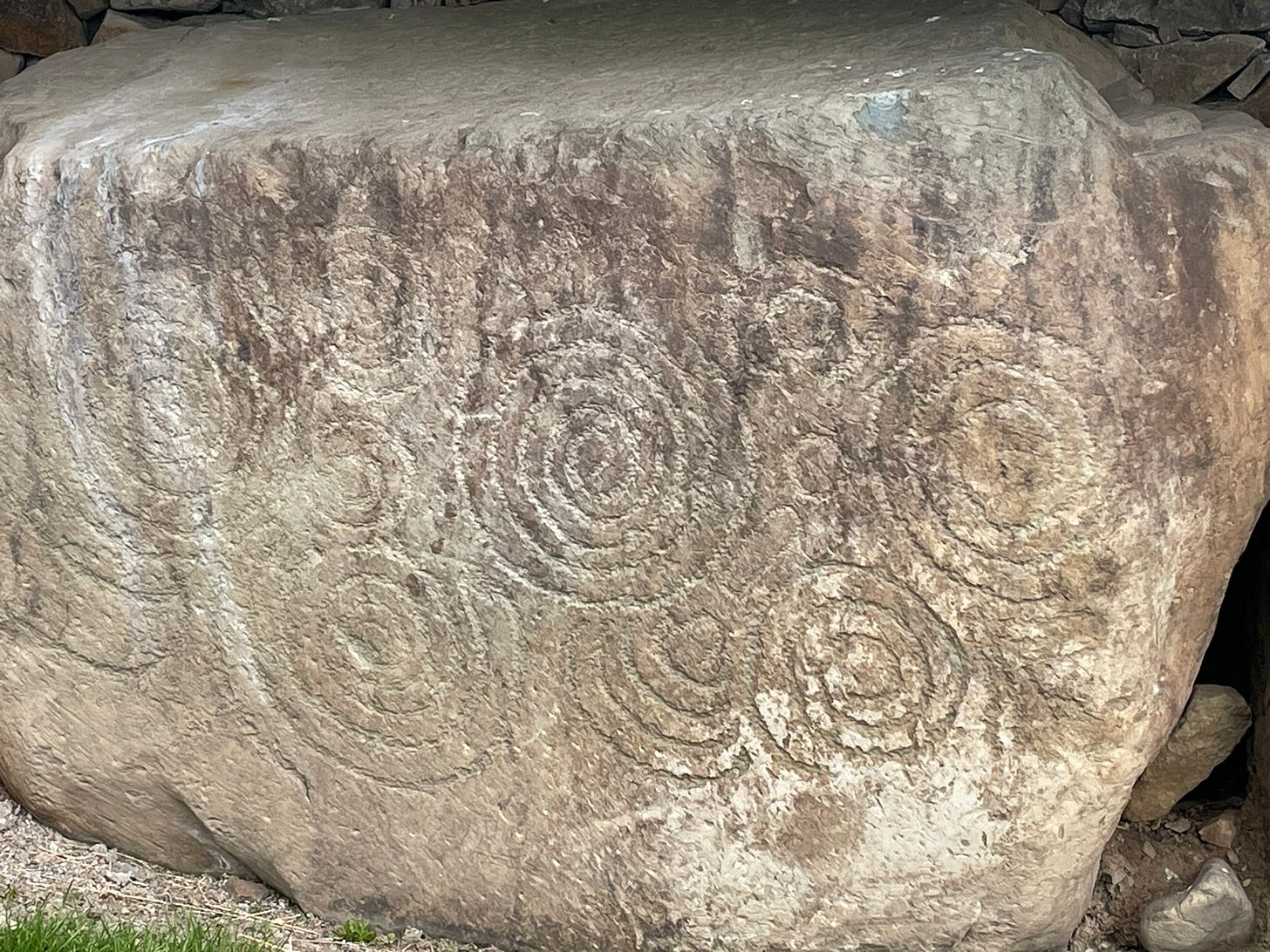
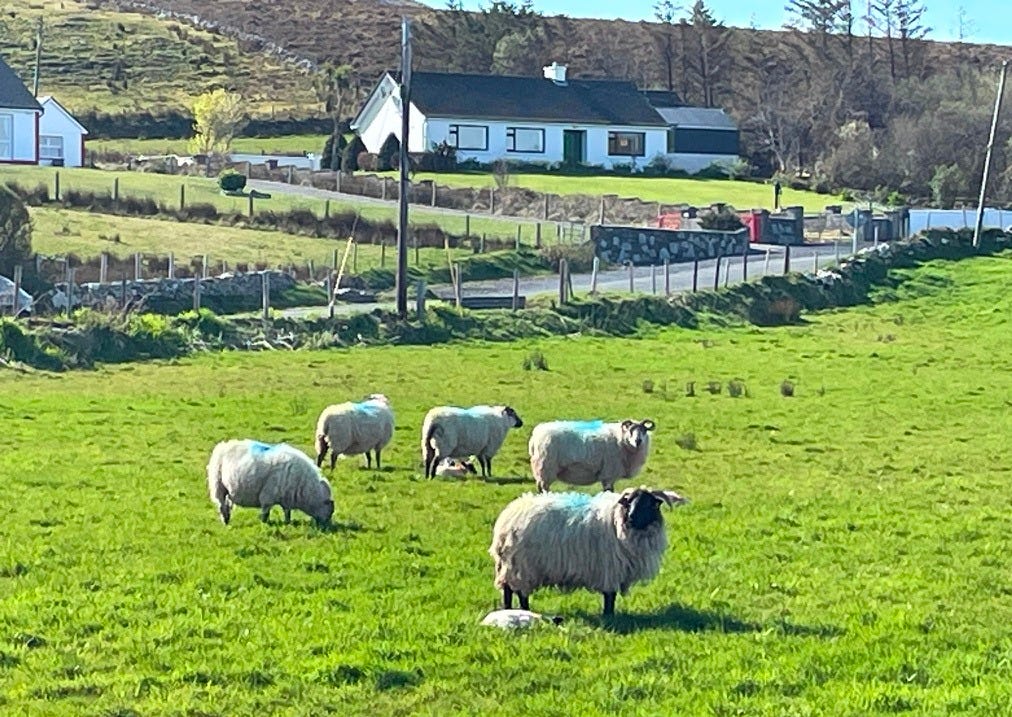
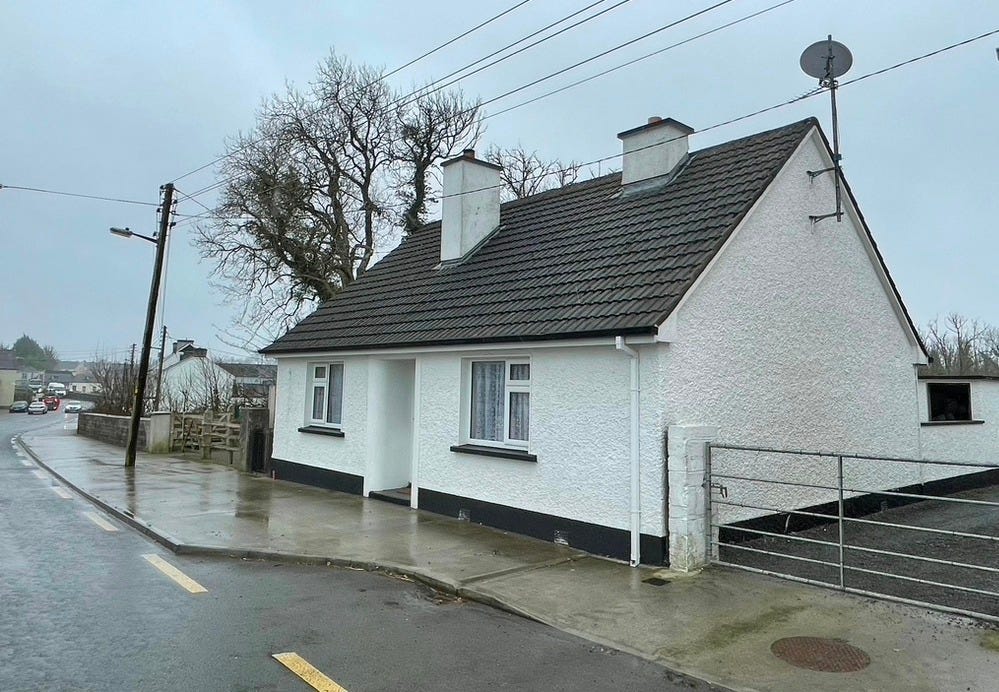
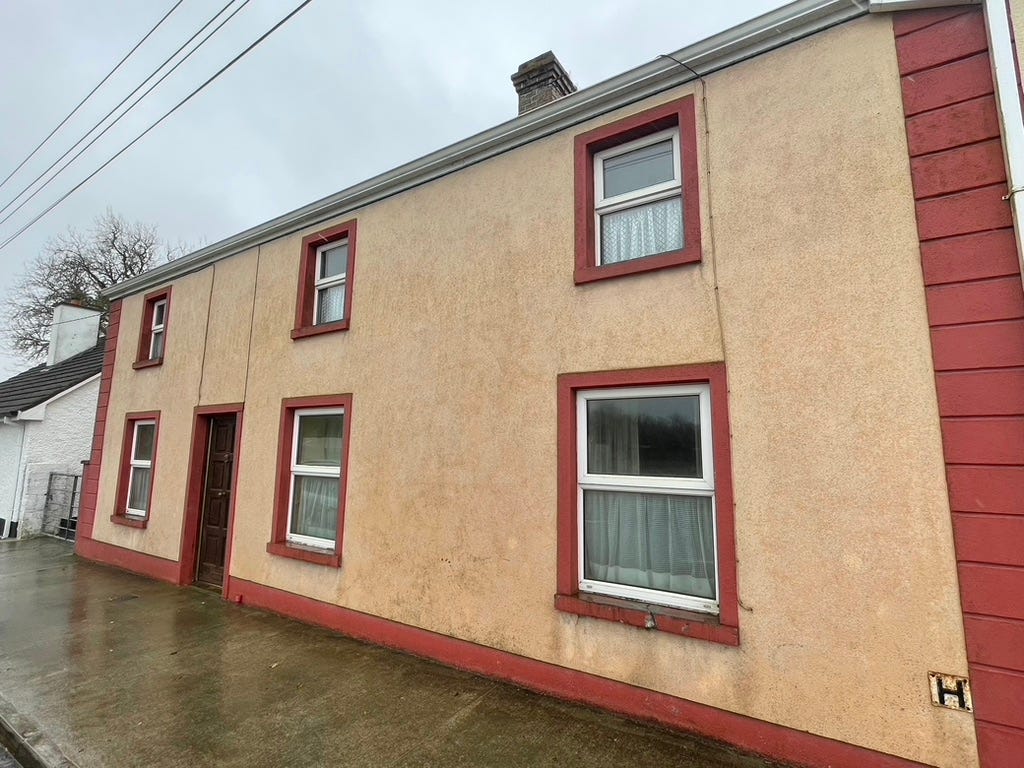
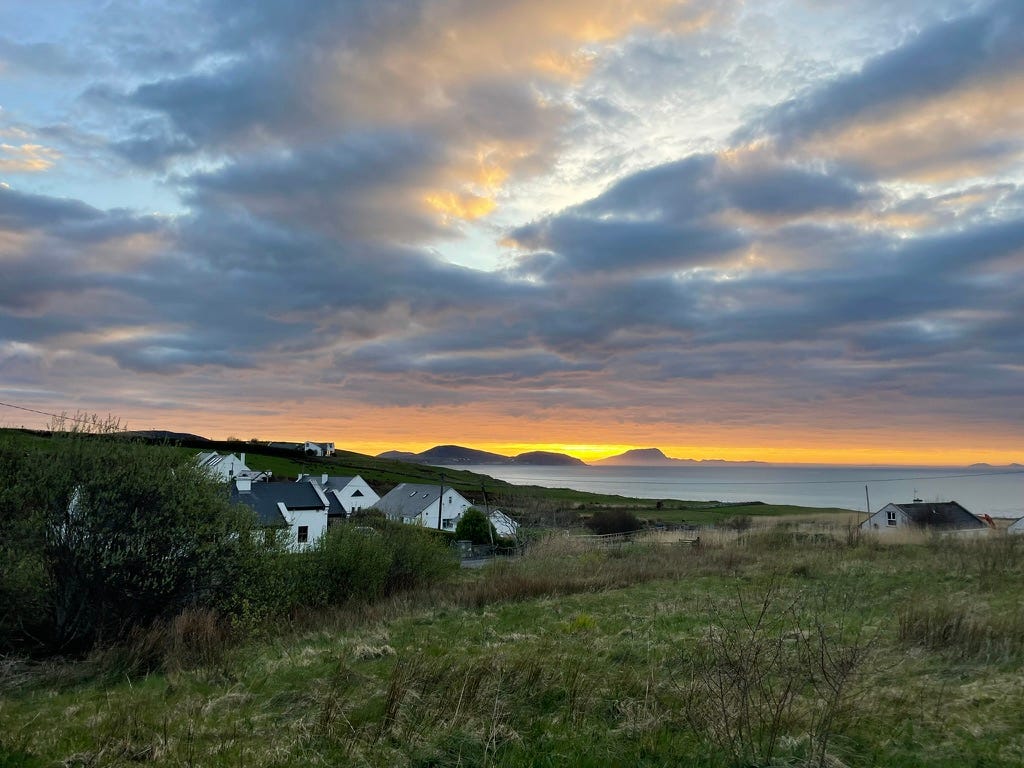
What a touching story of longing unfulfilled, and such beautiful images to set the scene. So enjoyed reading this post, Morgan.